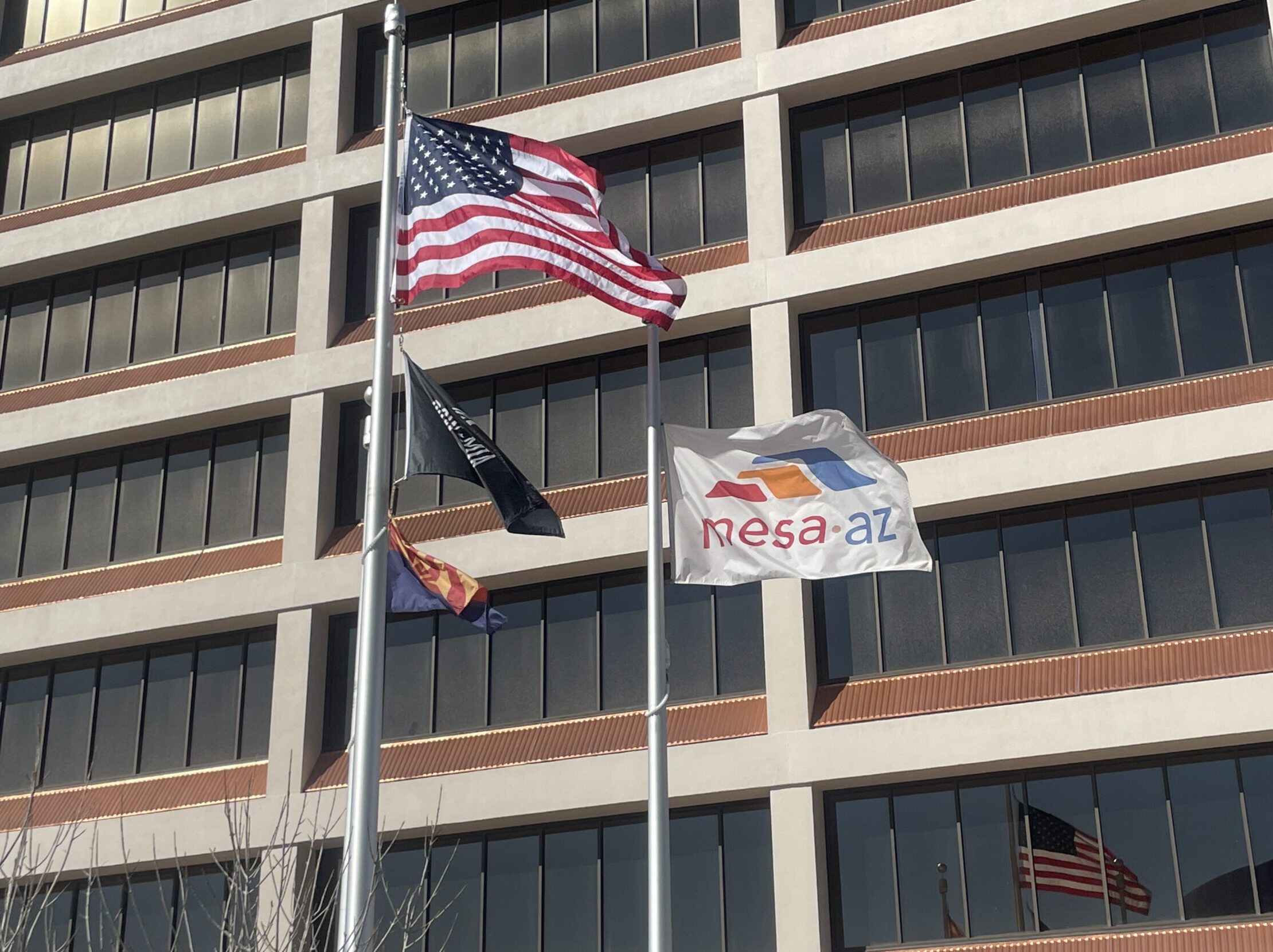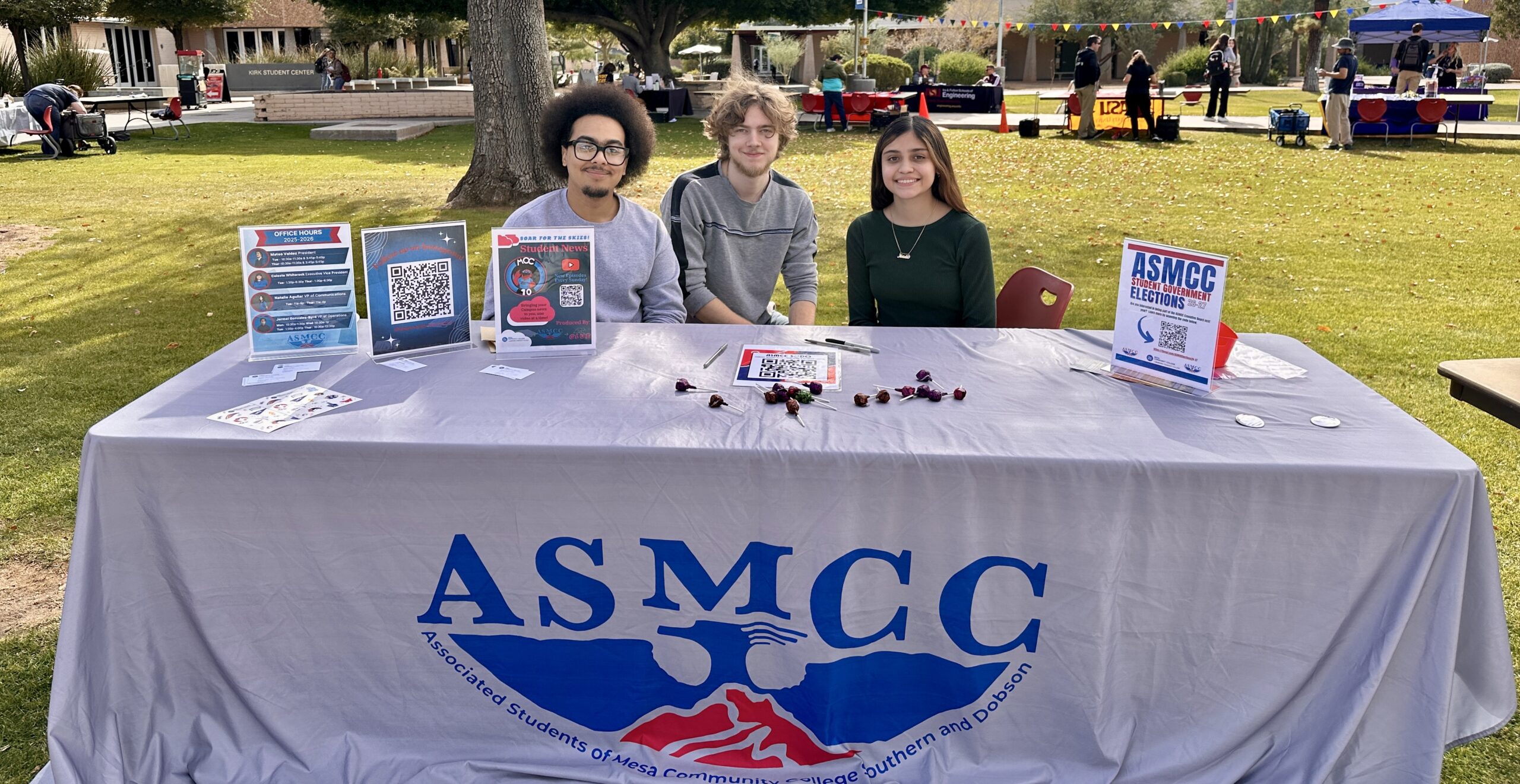Kian Hagerman
Mesa Legend
Mesa Community College has begun offering a class as one of only six community colleges, in partnership with Apple Inc. that is designed to instruct students to develop iOS applications. “The CIS150AB course is an object-oriented programming fundamentals course that covers such programming topics as programming development and design, variables, constants, functions, condition statements, loops, arrays, and objected-oriented programming concepts,” said professor Angeline Surber, who is instructing the class during the Fall 2017 semester.
This course was offered previously, though the use of Swift/xCode is unique to the new permutation of CIS150AB, and requires that a student has received a C or better grade in CIS105, or the permission of an instructor to enroll. Upon completion of the class, students will have a beginner’s knowledge of concepts and designs, though those that working in the iOS group will have the benefit of also being exposed to the creation of simple apps according to Surber. There are also two additional iOS App development courses in the planning stages, which will give future students the skills needed to create more complex and feature-rich apps.
The iOS classroom was designed to be a more collaborative and team programming environment, said Business and Information Systems Chair Linda Collins. “Apple has provided the curriculum for these classes and the programming that is being used has been developed by Apple to program apps for iPhones and iPad,” Collins said. Surber said that Apple had also provided eBooks and an iPad playground for students to work in, and much of the course’s materials as well, which are being incorporated into the curriculum. “The classroom is comprised of Mac computers, iPads, Apple TV and other technology resources,” Collins said.
Because Apple provided the curriculum, there are no expenses for students who enroll for textbooks or other resource tools to attend the class, according to Collins. “In many ways, our plans are to simulate a real-life work environment,” Collins said. Both versions of the class cover the same competencies that are required for students to learn, the key difference are the computer languages used. “In the regularly taught version of the course, we use the Java language to teach the fundamentals of programming,” Surber said. Java does not depend on any particular OS, while the Swift language and App playground used to teach programming is integrated into an iOS environment.
“There is another course that addresses similar competencies; however, this course is aligned directly for programming apps for iPhones and iPads,” Collins said. The two languages address different knowledge and needs, according to Collins. The plans for additional courses in iOS app development will build upon what is learned in the CIS150AB class. “The first course is the introduction level, where no programming experience is neceesary and where we teach beginning programming concepts and app development,” Surber said. “The second level course, the CIS165 includes using the iOS Frameworks and the Swift programming language to create apps, using the iOS Simulator that is included in Xcode.” Students will also be made aware of the opportunity to join the iOS developer program, which would launch and distribute their apps if they wish.
Surber said that the third class would, once approved by the curriculum, cover the creation and building of more complex apps, and that students would work with animations, the web and prototype planned app designs. “We plan to eventually add the new iOS introduction class with a different CIS150xx prefix to note that this will be the iOS fundamental programming course offering Swift,” Surber said. Next semester the CIS165 class will be offered, though Surber said that the third level course CIS265 is still to be approved. “There is a need for iOS app programmers for business and industry and we were informed by Apple that there are more needs for qualified app developers than there are available programmers,” Collins said. There is also a need for programmers of other languages as well however, Collins said.
For this reason, the Java version of the class will continue to be offered alongside what will become one of a series of courses focused on iOS app development. “By the end of the three-course sequence, students will be able to code apps for iPhone and iPad use,” Collins said. “The complexity of the apps they will be able to develop will depend on the individual student.”
Already a few weeks into the course, Collins was enthusiastic about the initial reaction from students. “The collaboration between students has been amazing and the excitement and energy capture the entire class,” Collins said. There are also plans for an Everyone Can Code summer camp for the upcoming summer semester, as well as plans to work with Mesa Public Schools on dual or concurrent enrollment possibilities for iOS app development where students could earn college credit.









